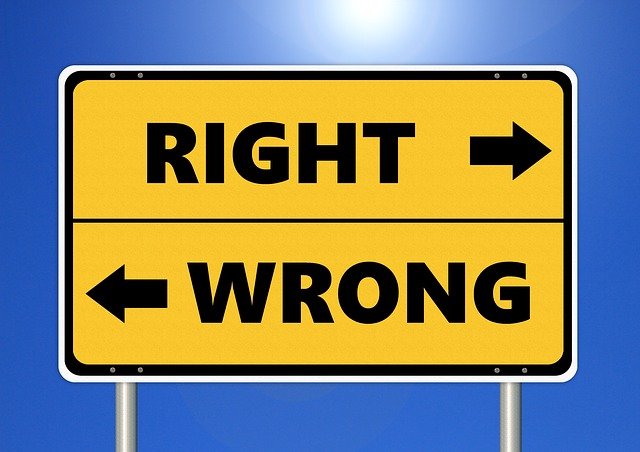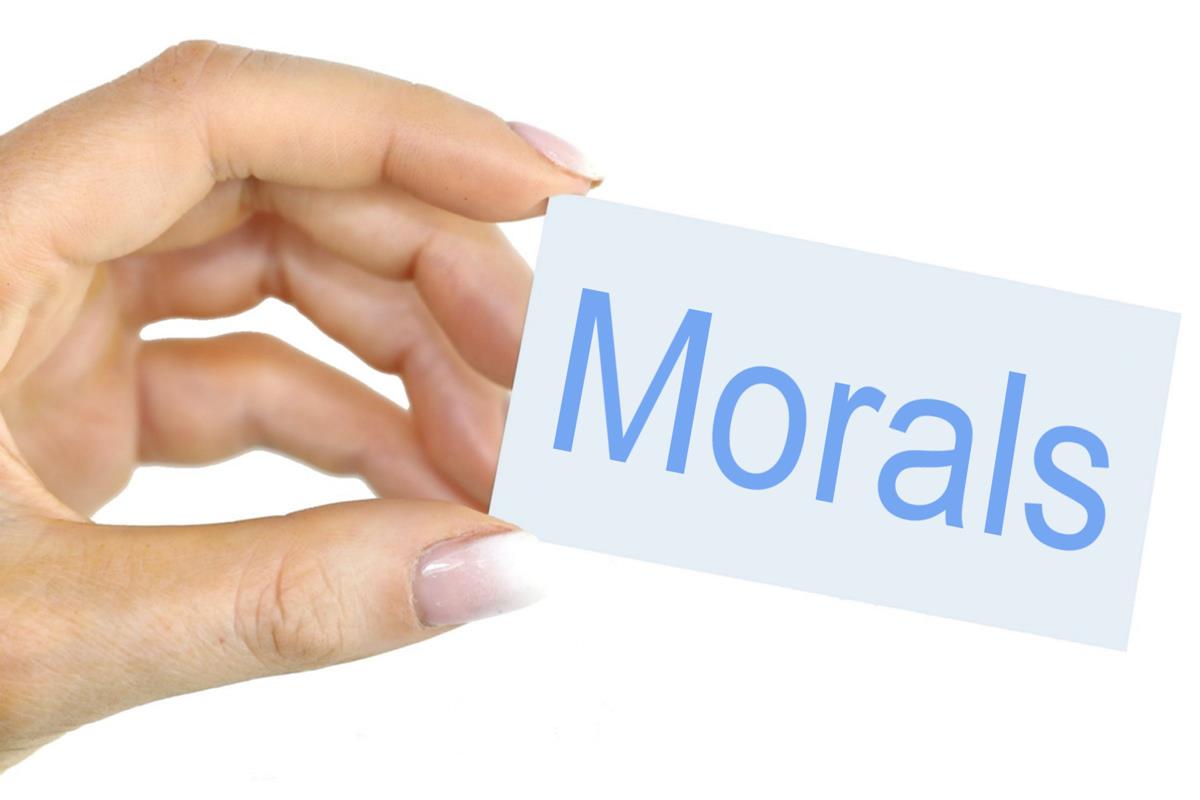What is the Difference Between Ethics and Morals
Table of Contents
The key difference between ethics and morals is that ethics are a response to a specific situation, whereas morals are general guidelines formed by society.
Both ethics and morals are almost similar and can be sometimes used interchangeably. Ethics are more subjective about the conduct of individuals. People can be selective here and think freely. Morals, meanwhile, are societal norms about right and wrong. Since morals are formed by society, people cannot be selective of these and should either accept or reject them.
CONTENTS
1. Overview and Key Difference
2. What are Ethics
3. What are Morals
4. Ethics vs Morals in Tabular Form
5. Summary – Ethics vs Morals
What are Ethics?
Ethics are the guiding principle that determines an individual or a group’s conduct. It is a branch of philosophy that involves the concepts of right and wrong behaviour. It also helps to decide what is justice and crime, virtue and vice based on various rights, obligations, benefits to society, fairness, or specific virtues. They usually impose reasonable restrictions to refrain from stealing, rape, assault, murder, slander, and fraud. They also include standards related to rights, such as the right to life, the right to privacy, etc.
The word ‘ethics’ originated from the Ancient Greek word ēthikós which means ‘relating to one’s character’. This Ancient Greek word was transferred into Latin as ‘ethica’ and then into French as ‘éthique’, and at last, it was transferred into English.
Some people relate ethics to their feelings. But, following their feelings cannot be equated with being ethical since feelings may deviate from what is ethical. Most religions teach high ethical standards. However, ethics cannot be only limited to religions since ethics are usually followed by atheists and devoted people alike and therefore are common to both of them. Ethics are not the same as law either. Because even laws, like feelings, sometimes deviate from what is ethical. For example, Old apartheid laws of present-day South Africa or pre-civil war slavery laws cannot be considered ethical.
Generally, in a society, most people follow the standards that are recognized as ethical. But it is not doing what society accepts because a society can be entirely an ethically corrupted one. This was true in the case of Nazi-occupied Germany. Moreover, if people always follow what society wants, then there will always be an agreement between everything, which is usually not so.

There are three major sections in ethics. They are,
- Meta-ethics – the theoretical meaning and reference of moral propositions and how their truth values are determined
- Normative ethics – the practical means of establishing a moral course of action
- Applied ethics – what a person is permitted to do in a specific situation
Examples of Ethical Principles
- Caring
- Loyalty
- Honesty
- Fairness
- Law-abiding
- Respect for others
- Promise keeping
- integrity
What are Morals
Morals are the social, cultural, religious beliefs and values of an individual or a group, which determines what is right or wrong. Morals are the rules and standards created or approved by society or culture. They are to be followed by other people while deciding what is right. Morals include beliefs that are not objectively right but what is considered right for any situation so that what is morally correct may not be objectively correct. Morals are not fixed; they change based on time, society, geographical location, religion, family, and life experiences. But some morals are considered universal.

Examples of Universal Morals
- Always tell the truth
- Do not destroy property
- Have courage
- Keep your promises
- Do not cheat
- Treat others as you want to be treated
- Be patient
- Be generous
What is the Difference Between Ethics and Morals?
Ethics are the guiding principle that deals with an individual or a group’s conduct. Morals, on the other hand, are the social, cultural, religious beliefs and values of an individual or a group which tells us what is right or wrong. The key difference between ethics and morals is that ethics are a response to a specific situation, whereas morals are general guidelines formed by society.
The following infographic lists the differences between ethics and morals in tabular form for side by side comparison.
Summary – Ethics vs Morals
Ethics are the guiding principle that deals with an individual or a group’s conduct, whether they are right or wrong. They are a response to a particular situation. The person himself decides and chooses ethics. Ethics do not change and so they are uniform to every place and time. Morals are the social, cultural, religious beliefs and values of an individual or a group which tell people what is right or wrong. They are formed and controlled by society; thus, people cannot choose them but have to either accept or reject them. Morals change based on societies and cultures and are not uniform. Thus, this is the summary of the difference between ethics and morals.
Reference:
1. “Ethics.” Wikipedia, 29 Aug. 2021.
2. “Morality.” Wikipedia, 3 Sept. 2021.
Image Courtesy:
1. “Ethics-right-wrong-ethical-moral-2991600” (CC0) via Pixabay
2. “Morals” by Nick Youngson (CC BY-SA 3.0) via The Blue Diamond Gallery
ncG1vNJzZmivp6x7pbXFn5yrnZ6YsqOx07CcnqZemLyue9ahmK1lmah6tbTEZpuinpaav6a6wp5km52krLKmuoyeq6Ghk6h6orrDZqSoqpGhwHA%3D